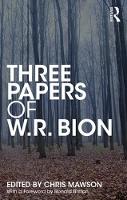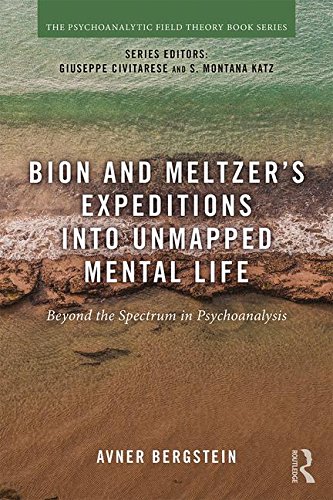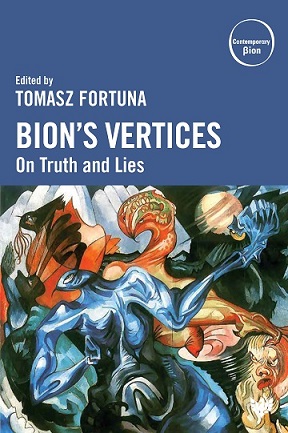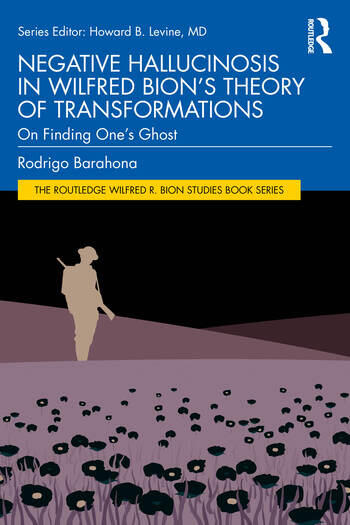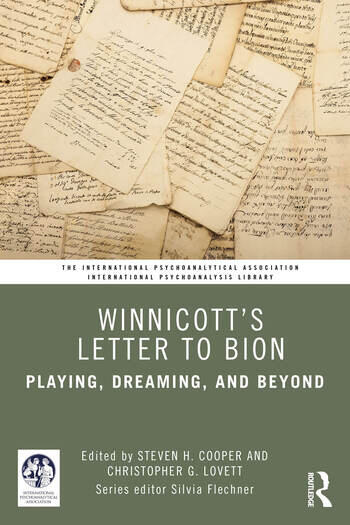Two Papers: 'The Grid' and 'Caesura'

Book Details
- Publisher : Routledge
- Published : 1989
- Cover : Paperback
- Pages : 64
- Category :
Psychoanalysis - Catalogue No : 2669
- ISBN 13 : 9780946439775
- ISBN 10 : 094643977X
Also by Wilfred R. Bion
Attention and Interpretation
Price £37.99
Clinical Seminars and Other Works
Price £54.99
Three Papers of W.R. Bion
Price £25.99
There are currently no reviews
Be the first to review
The Grid, an instrument devised by Bion to help the analyst record and elaborate observations arising from the analytic encounter, demonstrates how mathematics can be applied to locate the development, evolution and transformation of psychic elements and events.
Caesura takes its title from Freud's observation: "There is much more continuity between intra-uterine life than the impressive caesura of the act of birth would have us believe". Here Bion speculates on the relationship between physiological and psychological birth, and the possibility that a pre-natal "primitive sensitiveness" may carry over and inform later psychological life.
About the Author(s)
Wilfred R. Bion (1897 -1979) was born in India and first came to England at the age of eight to receive his schooling. During the First World War he served in France as a tank commander and was awarded the DSO and the Legion of Honour. After reading history at Queen's College, Oxford, he studied medicine at University College London, before a growing interest in psychoanalysis led him to undergo training analysis with John Rickman and, later, Melanie Klein. During the 1940s his attention was directed to the study of group processes. Abandoning his work in this field in favor of psychoanalytic practice, he subsequently rose to the position of Director of the London Clinic of Psychoanalysis (1956-62) and President of the British Psychoanalytical Society (1962-65). From 1968 he worked in Los Angeles, returning to England two months before his death in 1979.
A pioneer in group dynamics, he was associated with the 'Tavistock group', the group of pioneering psychologists that founded the Tavistock Institute in 1946 on the basis of their shared wartime experiences. He later wrote the influential Experiences in Groups, an important guide for the group psychotherapy and encounter group movements beginning in the 1960s, and which quickly became a touchstone work for applications of group theory in a wide variety of fields. Bion's training included an analysis with Melanie Klein following World War II. He was a leading member in the Kleinian school while in London, but his theories, which were always based in the phenomena of the analytic encounter, eventually revealed radical departures from both Kleinian and Freudian theory. While Bion is most well known outside of the psychoanalytic community for his work on group dynamics, the psychoanalytic conversation that explores his work is concerned with his theory of thinking and his model of the development of a capacity for thought.
Customer Reviews
Our customers have not yet reviewed this title. Be the first add your own review for this title.
You may also like
Bion and Meltzer's Expeditions into Unmapped Mental Life: Beyond the Spectrum...
Avner Bergstein
Price £37.99
Negative Hallucinosis in Wilfred Bion’s Theory of Transformations: On Finding...
Rodrigo Barahona
Price £29.99




